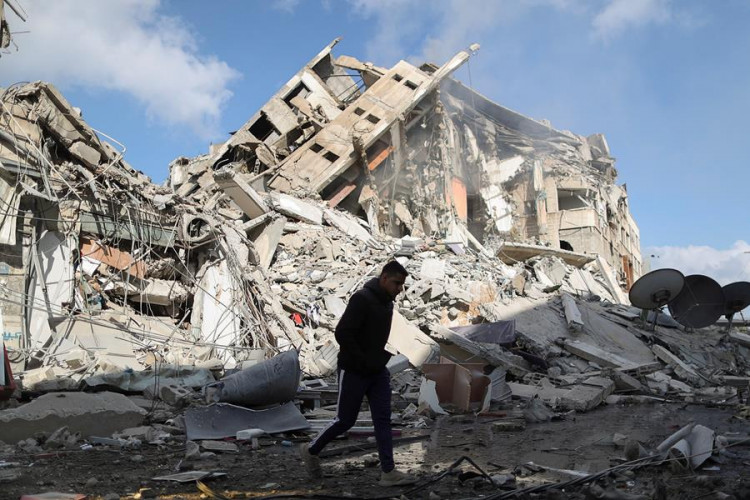In the latest eruption of violence in the Gaza Strip, the Hamas-run government reported a soaring death toll, indicating that at least 195 Palestinians met their demise due to Israel's assaults on the Jabalia refugee camp. Such attacks have caught the sharp eyes of U.N. human rights officials, who have sounded the alarm over potential war crimes being committed.
Foreign nationals, in a desperate bid to find safety, have been evacuating the beleaguered Gaza Strip. Reports suggest that of an initial list containing 500, at least 320 foreign citizens made their way to Egypt on Wednesday. This evacuation was facilitated through an agreement forged between Israel, Egypt, and Hamas. Among the evacuees were passport holders from nations including Australia, Japan, the United States, the United Kingdom, and various European countries. It's anticipated that the Rafah border crossing will reopen, allowing an estimated 7,500 foreign passport holders to evacuate over the forthcoming two weeks.
As background, Israel initiated an extensive campaign against Hamas militants, targeting Gaza from land, sea, and air, after Hamas orchestrated a cross-border incursion into southern Israel on October 7. The Israeli government holds Hamas responsible for the deaths of 1,400 individuals, largely civilians, and for taking over 200 people hostage. Meanwhile, Palestinian sources estimate that Israeli strikes have tragically claimed the lives of nearly 8,796 Palestinians, with a heart-wrenching 3,648 of them being children, since the onset of this offensive.
One of the gravest concerns emerging from this conflict centers around medical facilities. In the wee hours of Thursday, explosions reverberated near the al-Quds hospital in the densely populated Gaza City. Even though Israeli authorities had previously issued evacuation orders to the hospital, U.N. officials argue that adhering to these orders would jeopardize patients. The health infrastructure in Gaza is further strained as fuel shortages force hospital shutdowns, leaving essential facilities, including Gaza's sole cancer hospital, inoperable. Ashraf Al-Qudra, the Gaza health ministry spokesperson, expressed grave concerns, stating, "If we don't get fuel in the next few days, we will inevitably reach a disaster."
On the diplomatic front, U.S. Secretary of State Antony Blinken is embarking on his second trip to Israel within a month. Scheduled to meet Israeli Prime Minister Benjamin Netanyahu and other officials, Blinken aims to underscore the urgency of minimizing Palestinian civilian casualties while also expressing solidarity. Additionally, during his visit to Jordan - one of the few Arab nations with normalized ties to Israel - Blinken will emphasize the significance of safeguarding civilian lives. This comes at a time when Jordan has pulled back its ambassador from Tel Aviv, urging Israel to halt its aggressive maneuvers in Gaza.
Simultaneously, in the U.S., the House of Representatives is poised to discuss a bill proposing $14.3 billion in aid for Israel. However, its passage remains uncertain given the Democratic-controlled Senate's anticipated opposition and the White House's potential veto.
This unceasing conflict, marked by a crippling blockade and Israel's relentless assault, has rendered Gaza's condition increasingly dire. Residents face acute shortages of essentials like food, drinking water, fuel, and medicine. Dr. Fathi Abu al-Hassan, while waiting for his chance to cross into Egypt, poignantly remarked, "We open our eyes on dead people and we close our eyes on dead people."





